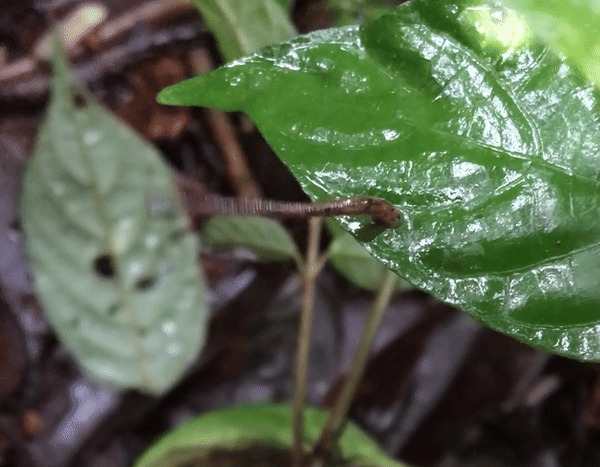Biology
Look Into a 'Mega Den' of 2,000 Slithering Rattlesnakes With This Live Stream in Colorado
Run by researchers at Cal Poly, the stream is part of a citizen science initiative that aims to change the public's perception of the much-maligned reptiles
Watch Chatty Beluga Families Migrate With These Stunning Live Cams in Canada
Polar Bears International and Explore.org are once again capturing video footage and audio recordings of the social marine mammals as tens of thousands congregate in the Churchill River this summer
3D DNA Preserved for 52,000 Years in Freeze-Dried Woolly Mammoth Remains
For the first time, researchers have mapped ancient genetic material in unprecedented detail
The Wild Story of What Happened to Pablo Escobar’s Hungry, Hungry Hippos
Ever since the demise of infamous drug kingpin, his pet hippos have flourished, wreaking havoc on the ecosystem and terrorizing local communities
Ancient DNA Unravels the Mysteries of the Dingo, Australia's Wild Dog
Researchers dove into thousands of years of evolutionary history, revealing new insights about the iconic, though sometimes vilified, canines
Carpenter Ants Perform Life-Saving Amputations to Treat Leg Injuries
A new study provides the first evidence of non-human animals performing amputations on others to improve their odds of survival
How Deep-Sea Comb Jellies Hold Their Shape Under Crushing Pressure
The delicate sea creatures fall apart when brought to the surface but can survive miles deep in the ocean due to special cell wall structures, according to a new study
Charlotte the 'Pregnant Virgin' Stingray Dies After Diagnosis of Reproductive Disease
The animal drew attention earlier this year for becoming pregnant despite having no male ray in her tank
Honeybees Can Sniff Out Lung Cancer, Scientists Suggest
New research opens the door for doctors to one day use bees as a living diagnostic tool
These Stunning Butterflies Flew 2,600 Miles Across the Atlantic Ocean Without Stopping
Researchers combined several lines of evidence to solve the mystery of why a group of painted ladies, which do not live in South America, were found fluttering on a beach in French Guiana
Meet the Forgotten Woman Who Revolutionized Microbiology With a Simple Kitchen Staple
Fanny Angelina Hesse introduced agar to the life sciences in 1881. A trove of unpublished family papers sheds new light on her many accomplishments
Watch Blood-Sucking Leeches Leap From Leaves and Soar Through the Air
New videos may help settle scientists' long-standing debate over whether leeches can jump
Time Is Running Out for the Hudson Bay Polar Bears
The southern and western subpopulations are on track to disappear as sea ice becomes too thin amid rising global temperatures
Meet the 'Echidnapus,' an Extinct Creature That Resembles Both the Echidna and Platypus of Today
The species is among three newly identified monotremes, or egg-laying mammals, discovered from fossils in Australia that are shedding light on the odd animals' evolution
African Elephants May Call Each Other by Name
In a new study, a computer model was able to identify the recipient of an elephant's call more than a quarter of the time, which scientists say is significantly greater than chance
Don't Call Wombats Heroes, but Their Burrows Do Provide Food, Water and Shelter for Other Animals
During Australia’s devastating bushfires in 2019 and 2020, misinformation spread about wombats welcoming animals into their underground homes—but a new study finds a kernel of truth in the viral story
'Pregnant Virgin' Stingray Won't Give Birth After All—Here's Why
Charlotte, a female round stingray in North Carolina who has gathered a legion of online fans, is no longer pregnant due to a "rare reproductive disease"
How Do We Know When to Pee?
The basic urge is surprisingly complex and can go awry as we age
Between Dives, Orcas Take Only a Single Breath
A new study finds the black-and-white marine mammals tend to make shorter, shallower dives compared to humpback and blue whales, making orcas the "sprinters" of the ocean
Eerie Lampreys Hint at the Origins of Our 'Fight-or-Flight' Response and Sympathetic Nervous System
The jawless, parasitic fish largely haven't changed over the last 340 million years, but they might be better sources for studying our own evolution than thought, a recent study suggests
Page 1 of 85
:focal(600x400:601x401)/https://tf-cmsv2-smithsonianmag-media.s3.amazonaws.com/filer_public/1f/87/1f8744da-9a25-4eff-aa47-8bc6b5d45b10/41bb6a1f-9f09-352e-7ab5-f1d358e05407.jpg)
:focal(600x400:601x401)/https://tf-cmsv2-smithsonianmag-media.s3.amazonaws.com/filer_public/e1/61/e161ee8e-6cc6-4049-9842-b8072931a225/kieran-mciver-1311209.jpg)
:focal(600x400:601x401)/https://tf-cmsv2-smithsonianmag-media.s3.amazonaws.com/filer_public/9d/03/9d03e8f0-5b0e-4445-b90a-69b96ccf49b0/imrs_1.png)
:focal(700x527:701x528)/https://tf-cmsv2-smithsonianmag-media.s3.amazonaws.com/filer_public/3d/c2/3dc23c07-7efb-4254-830f-45cab1968fb5/smithmag-podcast-s02-ep11-hippo-article.jpg)
:focal(1067x701:1068x702)/https://tf-cmsv2-smithsonianmag-media.s3.amazonaws.com/filer_public/f4/d0/f4d0fb37-4f26-455a-a8c4-ada959fa2a8a/gettyimages-80254810.jpg)
:focal(350x297:351x298)/https://tf-cmsv2-smithsonianmag-media.s3.amazonaws.com/filer_public/24/49/24499a13-136e-448c-b662-f611f6d0f795/low-res_video_still_image__woundcare_and_amputation_in_c_maculatus_credit_danny_buffat.jpg)
:focal(1060x713:1061x714)/https://tf-cmsv2-smithsonianmag-media.s3.amazonaws.com/filer_public/78/11/7811e0eb-8364-458a-a9b4-14a582663169/gettyimages-90050101.jpg)
:focal(1024x770:1025x771)/https://tf-cmsv2-smithsonianmag-media.s3.amazonaws.com/filer_public/29/a1/29a10843-cb53-4808-b49a-fd229a727237/430063553_706533311658853_4996824608781781526_n.jpg)
:focal(1024x683:1025x684)/https://tf-cmsv2-smithsonianmag-media.s3.amazonaws.com/filer_public/94/10/9410cbf2-768e-4115-8542-924193a2ee66/2048px-honey_bee_apis_mellifera.jpeg)
:focal(2117x1250:2118x1251)/https://tf-cmsv2-smithsonianmag-media.s3.amazonaws.com/filer_public/b0/c3/b0c341da-9979-4fef-8ae7-1865608d7fe4/una_mariposa_cardera_a_punto_de_emprender_el_vuelo_autor_roger_vila.jpg)
:focal(700x527:701x528)/https://tf-cmsv2-smithsonianmag-media.s3.amazonaws.com/filer_public/eb/e4/ebe4e883-241d-40cc-b92b-3a96ce2fb152/hesse.jpg)

:focal(4320x2880:4321x2881)/https://tf-cmsv2-smithsonianmag-media.s3.amazonaws.com/filer_public/aa/24/aa245cf7-977f-46fc-9198-b2e4c77bbeb3/erinn-hermsen-0129.jpg)
:focal(517x379:518x380)/https://tf-cmsv2-smithsonianmag-media.s3.amazonaws.com/filer_public/5a/2c/5a2c8abd-95de-4b9f-a80a-045996094de7/age_of_monotremes__echidnapus_bottom_right_ilustration_by_peter_shouten.jpeg)
:focal(3120x2080:3121x2081)/https://tf-cmsv2-smithsonianmag-media.s3.amazonaws.com/filer_public/ea/39/ea3944b5-3e26-4805-af99-aedd08875f3e/gettyimages-2151311245.jpg)
:focal(1000x705:1001x706)/https://tf-cmsv2-smithsonianmag-media.s3.amazonaws.com/filer_public/f8/fd/f8fd73a1-d543-4846-9f41-955996eee6bf/gyae034_fig1.jpeg)
:focal(1024x887:1025x888)/https://tf-cmsv2-smithsonianmag-media.s3.amazonaws.com/filer_public/a6/0b/a60b5879-4514-4b2e-bf14-885be3261664/428632311_699998358979015_6079262285714244924_n.jpg)
:focal(800x602:801x603)/https://tf-cmsv2-smithsonianmag-media.s3.amazonaws.com/filer_public/18/66/186616cb-4800-471a-b199-f546735811a3/gettyimages-643755291_web.jpg)
:focal(960x677:961x678)/https://tf-cmsv2-smithsonianmag-media.s3.amazonaws.com/filer_public/85/a3/85a3607d-5146-463a-bc8e-6cc2d9cc750b/killer-whales-surfacing-02.jpg)
:focal(720x370:721x371)/https://tf-cmsv2-smithsonianmag-media.s3.amazonaws.com/filer_public/ac/ba/acbaba09-a0cf-4a4b-b584-4a725bd28d65/marianne_bronner-evolution_o2e16d0bafill-1600x810-c100.jpg)